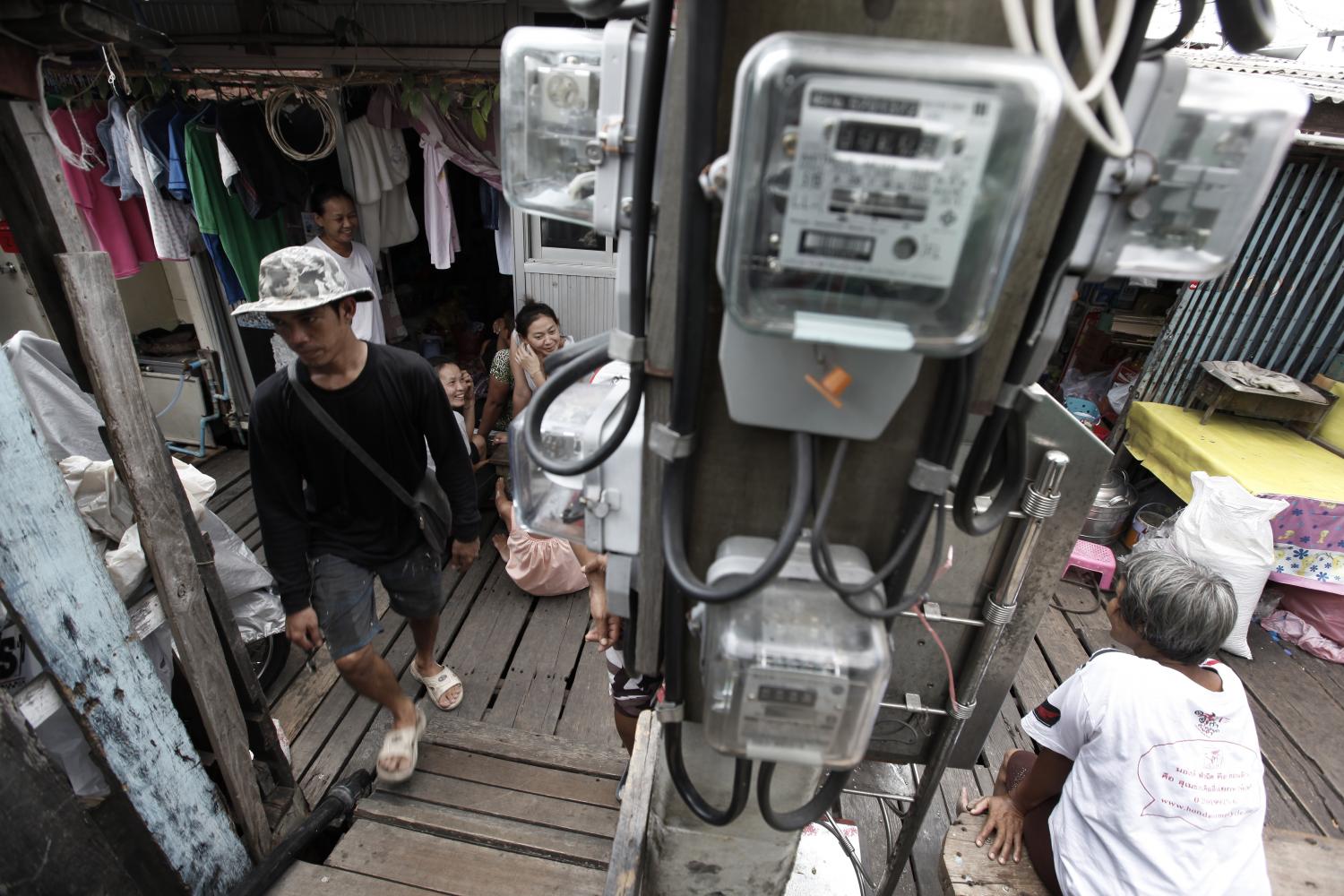
Costly electricity bills are prompting political parties to pit their energy policies against their rivals in an effort to catch the attention of voters in next week's general election.
Parties pushing for the adoption of new energy management policies comes after a new power tariff of 4.70 baht per kilowatt-hour (unit) took effect on May 1.
A higher power tariff results in costlier electricity bills.
The Energy Regulatory Commission decided to reduce the power tariff from 4.72 baht per unit for households and 5.33 baht per unit for businesses.
Pichai Naripthaphan, a former energy minister who works for the Pheu Thai Party, said the party plans to immediately decrease the price of electricity as well as oil and gas in the short term to relieve the financial burden on consumers.
Over the long term, the party aims to push ahead with talks on an overlapping claim area (OCA) between Thailand and Cambodia in order to jointly develop a new petroleum site in the upper part of the Gulf of Thailand.
The OCA is likely to be a new petroleum source for both countries because the site is located near the Bongkot and Erawan gas blocks, according to the Department of Mineral Fuels.
Mr Pichai said the party would continue to promote greater use of renewable forms of energy so the country can be less dependent on fossil fuels.
Korn Chatikavanij, leader of the Chart Pattanakla Party, said on the campaign trail in the northeastern province of Roi Et the power tariff of 4.70 baht per unit is too high given the current price of imported liquefied natural gas (LNG).
Thailand uses LNG as a key fuel for power generation. Its price has continued to fall.
LNG prices are used to calculate the fuel tariff (Ft), a key component of the power tariff.
Mr Korn suggested the authorities consider recalculating, or even waiving the Ft for a period of three months so that power bills would better reflect the actual cost of electricity generation.
Other parties also promised to reduce the price of electricity and promote renewable energy.
Mingkwan Sangsuwan, a key figure in the Palang Pracharath Party's economic team, vowed to make a significant reduction in power bills.
The Democrat Party has stressed the need to restructure energy prices in the country, while the Bhumjaithai and Move Forward parties pledged to promote greater use of solar power.
